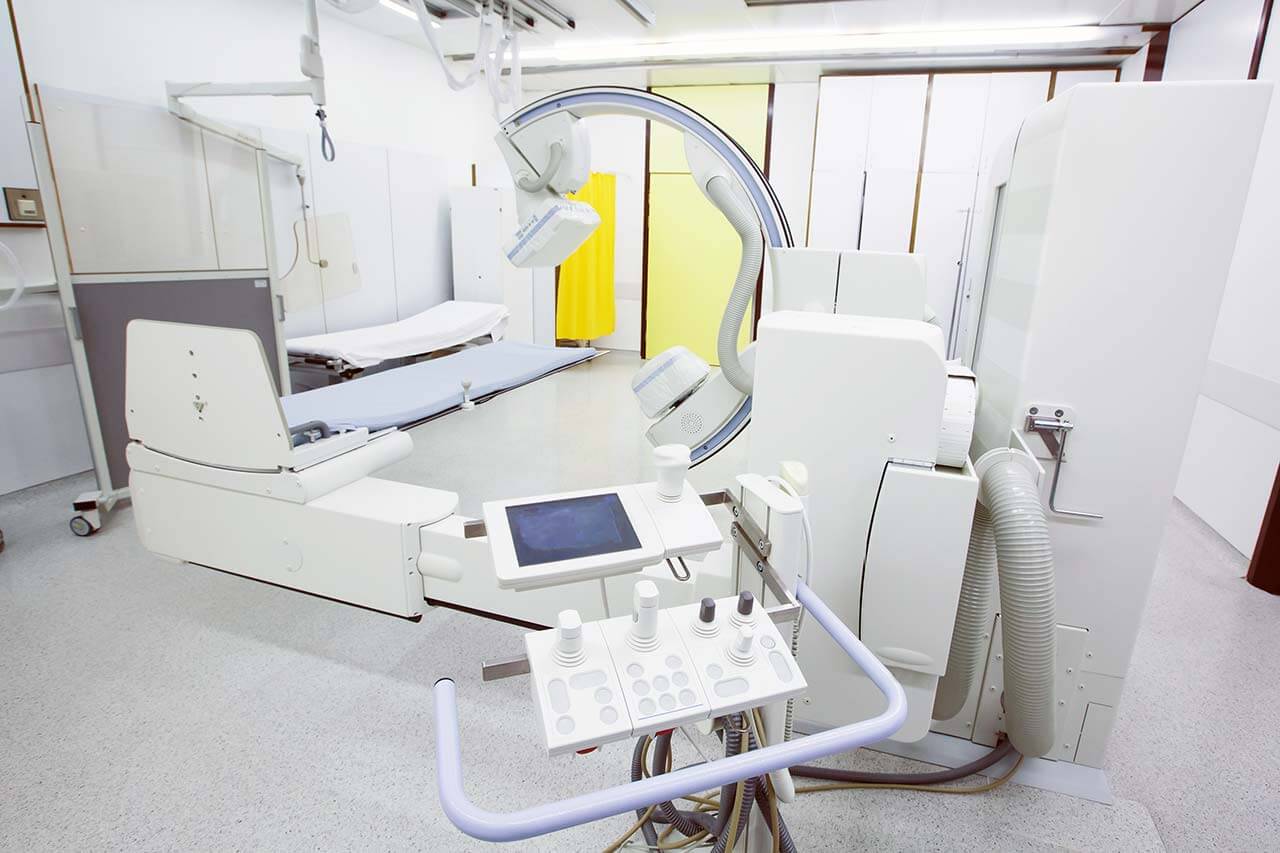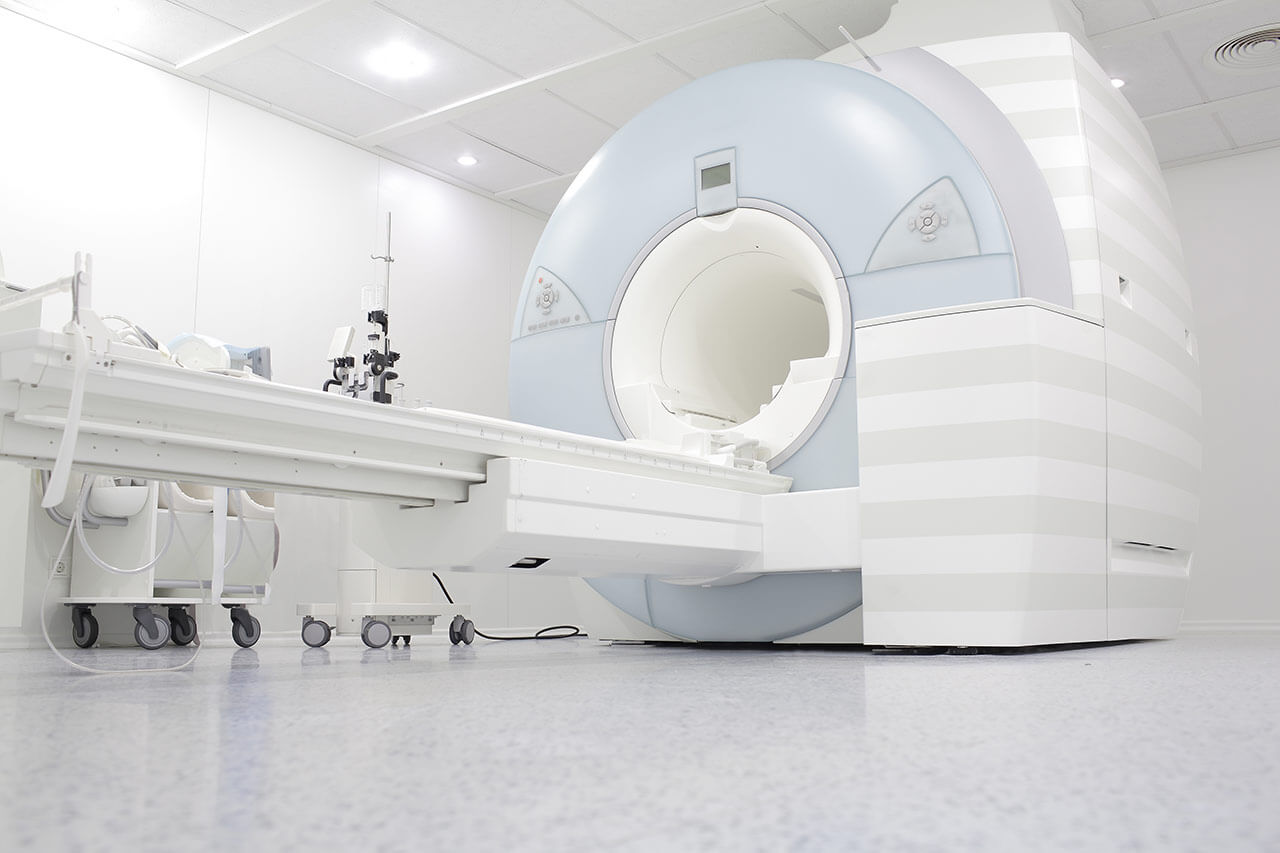
The program includes:
- Initial presentation in the clinic
- clinical history taking
- review of medical records
- physical examination
- laboratory tests:
- complete blood count
- general urine analysis
- biochemical analysis of blood
- inflammation indicators (CRP, ESR)
- indicators blood coagulation
- antinuclear antibodies (ANA)
- anti-dsDNA
- anti-Smith
- blood test for syphilis
- LE prep test
- ultrasound of the abdomen und kidney
- differential diagnosis of other diseases of the skin
- consultation of related specialists
- symptomatic specific treatment
- the cost of essential medicines and materials
- nursing services
- control examinations
- full hospital accommodation
- developing of further guidance
Required documents
- Medical records
Service
You may also book:
 BookingHealth Price from:
BookingHealth Price from:
About the department
The Department of Rheumatology at the Hannover Medical School offers comprehensive diagnostics and effective treatment of the full range of rheumatic diseases, including lesions of internal organs caused by rheumatic pathologies and their complications. Of particular interest to the department's rheumatologists is the diagnostics and treatment of rheumatoid arthritis, psoriatic arthritis, spondyloarthritis, Sjogren's syndrome, scleroderma, and gout. The Chief Physician of the department is Prof. Dr. med. Torsten Witte.
Medical care is provided both on an outpatient and inpatient basis. The department has 11 beds for patient hospitalization. The treatment is based on an interdisciplinary approach, and therefore doctors from related medical fields are involved in the therapeutic process, including nephrologists, gastroenterologists, ophthalmologists, etc. To successfully eliminate rheumatic pathologies, doctors usually use conservative treatment methods, namely drug therapy. The department's medical team uses both classical and advanced pharmaceuticals in its clinical practice.
The department has modern diagnostic rooms for a comprehensive assessment of the patient's condition and making an accurate diagnosis. It carries out ultrasound examinations, high-precision imaging diagnostics (CT and MRI), as well as the necessary laboratory tests. Not the least role is played by clinical examination, study of the patient's anamnesis and his complaints. If the examination confirms the presence of rheumatic pathology, the attending physician thinks of the optimal treatment tactics, taking into account the particular type of rheumatic disease, the presence or absence of complications, the patient's age, etc. In addition to intake of individually selected drugs, the special course of physiotherapy is usually prescribed to patients. This treatment can improve mobility and relieve pain. In some cases, electrotherapy, ultrasound therapy, and other treatment methods can be applied as well. Intra-articular injections of radioactive yttrium are also often used. If the rheumatic disease has reached its final stages and conservative treatment methods do not give the desired result, the last line therapy is minimally invasive surgery – arthroplasty and joint replacement surgery. The operations are carried out in cooperation with orthopedists.
The department's medical team applies all medical resources, its rich clinical experience and professional skills to achieve long-term remission or complete recovery of the patient, ensuring him a decent quality of life and freedom of movement.
The department’s range of medical services includes:
- Diagnostics and treatment of rheumatoid arthritis
- Diagnostics and treatment of psoriatic arthritis
- Diagnostics and treatment of spondyloarthritis
- Diagnostics and treatment of Sjogren's syndrome
- Diagnostics and treatment of scleroderma
- Diagnostics and treatment of systemic lupus erythematosus
- Diagnostics and treatment of vasculitis
- Diagnostics and treatment of gout
- Diagnostics and treatment of ankylosing spondylitis
- Diagnostics and treatment of fibromyalgia
- Diagnostics and treatment of dermatomyositis
- Diagnostics and treatment of other rheumatic diseases
Curriculum vitae
Higher Education and Postgraduate Training
- 1984 - 1990 Study of Human Medicine at the Hannover Medical School and at the University of Goettingen.
- 1987 Doctoral Degree.
- 2000 Board certification in Internal Medicine.
- 2003 Habilitation.
- 2007 Board certification in Rheumatology.
Professional Career
- 1990 - 1994 Assistant Physician, Department of Immunology at the Hannover Medical School.
- 1994 - 1997 Research Fellow, Dana-Farber Cancer Institute, Department of Immunology, Harvard Medical School, Boston.
- 1997 - 2000 Assistant Physician, Department of Immunology, Hannover Medical School, and since 2000 – Senior Physician.
- Since 2008 W3 Professor of Rheumatology and Head of the Department of Rheumatology at the Hannover Medical School.
Positions in Scientific Societies and Organizations
- 2003 - 2009 Representative of the Working Group on Clinical Immunology, German Society for Immunology.
- 2003 - 2009 Representative of the Working Group on Immune Vasculitis, German Society of Rheumatology.
- Since 2012 Member of the "Laboratory Diagnostics" Commission of the German Society of Rheumatology.
- Since 2015 Member of the "Student Education" Commission of the German Society of Rheumatology.
Prizes, Awards and Honors
- 2004 Sicca Prize for the discovery of antibodies to alpha-fodrin as a diagnostic marker for Sjogren's syndrome.
- 2012 Award of Excellence in Teaching awarded by students of the Hannover Medical School for outstanding teaching performance in their 5th year.
- 2015 Julius Springer Award for Best Paper in Rheumatology.
Photo of the doctor: (c) Medizinische Hochschule Hannover (MHH)
About hospital
The Hannover Medical School has the status of a leading German medical facility. The advanced medical technologies, highly qualified specialists, as well as productive research activities form a solid basis for top-class medical service of the world standard. The hospital is proud of its outstanding achievements in the treatment of cancer, diseases of the lung, heart, kidney, liver and metabolic disorders, as well as surgical diseases.
The medical facility diagnoses and treats more than 63,000 inpatients and about 470,000 outpatients annally. These indicators are growing steadily, which indicates the reputability and prestige of the hospital in the European medical arena.
For decades, the hospital has been a pioneer in transplantation medicine and is one of the leading centers of this specialization in the world. It performs about 400 transplantations of solid organs annually. Also, the hospital has performed over 130 bone marrow transplantations. In addition, the hospital ranks among the world leaders in cochlear implantation for the treatment of hearing loss.
Much attention is paid to interdisciplinary cooperation. Since 2016, the hospital has the largest certified Cancer Center in the Federal State of Lower Saxony, which provides comprehensive, multidisciplinary medical care in accordance with the standardized protocols of cancer societies.
The specialists of the hospital offer patients not only modern treatment of the highest quality, but also attentive care, sympathetic attitude to the patient's problems and understanding of his individual needs. Thus, the patient can be sure that his health is in the safe hands of highly qualified doctors.
Photo: (c) depositphotos
Accommodation in hospital
Patients rooms
The patients of the Hannover Medical School live in comfortable and cozy rooms. Each patent room has an ensuite bathroom with shower and toilet. A standard patient room includes an automatically adjustable bed with an orthopedic mattress, a bedside table, a wardrobe, a TV and a telephone. You can use TV, telephone and Internet using a special chip card, which can be purchased at self-service terminals or ordered at the service counter. The hospital allows the patients to use mobile phones, with the exception of intensive care units, some departments and diagnostic rooms.
If desired, the patient can stay in an enhanced-comfort room. Such rooms are distinguished by a more sophisticated design, and are additionally equipped with upholstered furniture, a safe for storing valuables and a mini fridge.
Meals and Menus
The patient and the accompanying person are offered delicious and balanced three meals a day. Breakfast and dinner are served buffet style and lunch can be chosen from three set menus. All dishes are prepared by professional chefs using the freshest ingredients available in the region.
If you are on a specific diet for some reason, you will be offered an individual menu. Please inform the medical staff about your dietary preferences prior to the treatment.
Further details
Standard rooms include:
Religion
There is a chapel on the territory of the hospital, where Christian and Catholic services are regularly held. The hospital provides a prayer room for followers of Islam, which is open for visits 24 hours a day.
Religious services can also be provided upon request.
Accompanying person
During an inpatient program, an accompanying person can stay with you in the patient room or in a hotel of your choice.
Hotel
During an outpatient program, you can stay in a hotel of your choice. The managers will help you choose the most suitable options.




